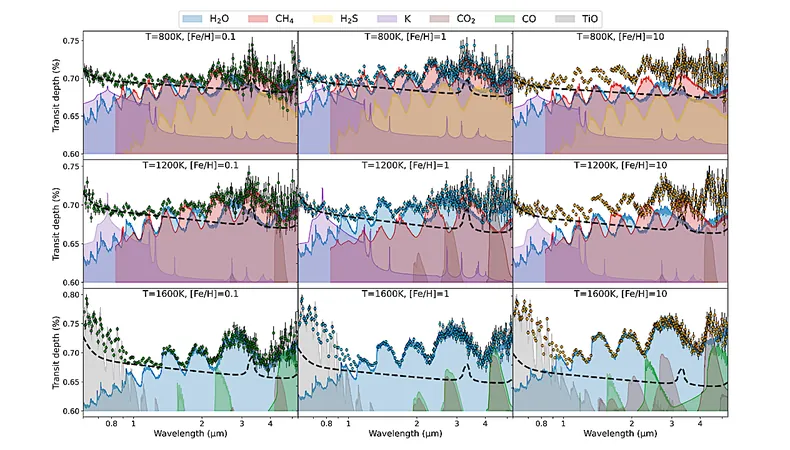
Unlock the Secret to Youthful Brain Aging: Study Reveals the Power of the Mediterranean Diet!
2024-11-05
Author: Michael
Recent MRI research has revealed that maintaining healthy blood sugar levels may be crucial for slowing brain aging. This groundbreaking insight originates from the DIRECT PLUS trial—one of the largest and longest studies on diet and brain health to date, involving nearly 300 participants over an 18-month period.
The study highlights a significant correlation between dietary habits and brain vitality, particularly for those adhering to the Green Mediterranean diet. This enhanced version of the traditional Mediterranean diet emphasizes plant-based foods and has shown remarkable benefits in preserving brain structure and function, especially in areas susceptible to age-related decline.
Lead researcher Iris Shai, from Ben-Gurion University and an adjunct professor at Harvard, emphasizes the importance of keeping blood sugar levels within a healthy range. “When paired with a nutritious diet and consistent physical activity, low blood sugar levels could be key to maintaining a young and vibrant brain,” she notes. Important findings point to polyphenols in plant-based foods crossing the blood-brain barrier, potentially reducing inflammation critical for memory function.
Participants in the study were divided into three groups: those following the Green Mediterranean diet, those adhering to a standard Mediterranean diet, and others following general healthy eating guidelines. The Green-Med group particularly stood out, incorporating green tea and Mankai duckweed shakes into their daily routine. Throughout the 18 months, participants had regular bloodwork and MRI scans to monitor changes over time.
To measure cognitive decline, researchers used a metric known as hippocampal occupancy (HOC) score—a ratio comparing hippocampal and inferior lateral ventricle volumes. Higher HOC scores were associated with a “younger” brain age. Interestingly, participants who demonstrated greater HOC deviations also exhibited lower body weight, waist circumference, and healthier blood pressure and insulin levels.
The most striking results revealed that those who significantly lowered their HbA1c (a marker of blood sugar control) experienced notable changes in critical brain structures like the thalamus, caudate nucleus, and cerebellum. Remarkably, the Green Mediterranean diet participants demonstrated the greatest improvements.
While the Mediterranean diet has long been lauded for its cardiovascular benefits, its influence on cognitive health has remained relatively unexplored until now. The study's findings suggest that embracing a Green Mediterranean diet could be a simple yet impactful lifestyle change for enhancing cognitive health and potentially slowing down brain aging.
“This trial opens the door to a safe and effective way to promote cognitive longevity through dietary adjustments,” adds first author Dafna Pachter, PhD.
Discover more about how the Mediterranean diet can revolutionize your brain health and be one step closer to a youthful mind!









 Brasil (PT)
Brasil (PT)
 Canada (EN)
Canada (EN)
 Chile (ES)
Chile (ES)
 España (ES)
España (ES)
 France (FR)
France (FR)
 Hong Kong (EN)
Hong Kong (EN)
 Italia (IT)
Italia (IT)
 日本 (JA)
日本 (JA)
 Magyarország (HU)
Magyarország (HU)
 Norge (NO)
Norge (NO)
 Polska (PL)
Polska (PL)
 Schweiz (DE)
Schweiz (DE)
 Singapore (EN)
Singapore (EN)
 Sverige (SV)
Sverige (SV)
 Suomi (FI)
Suomi (FI)
 Türkiye (TR)
Türkiye (TR)